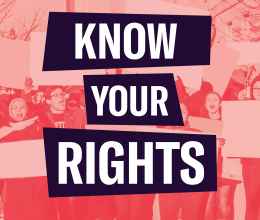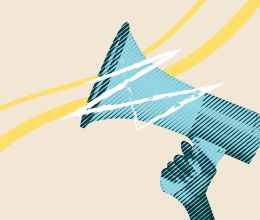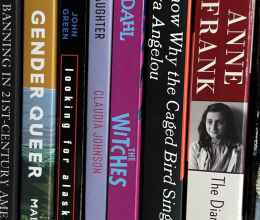In communities across Illinois, loud and activated groups are attempting to limit First Amendment rights and silence marginalized voices. They do this by pushing local community library boards, school boards, and other public bodies and officials to ban books, events, and other protected expression based on its content. But when the government bans speech based on the content it expresses, that is censorship, and it is unconstitutional.
Your local elected officials should be defending free speech rights guaranteed by the First Amendment. The ACLU of Illinois issued an open letter to local public officials explaining their responsibilities as elected officials to protect everyone’s rights – even when faced with loud opposition.
But it can be difficult for local elected officials to uphold these fundamental rights when the groups calling to limit speech and equal access are the only ones who speak out and show up at public meetings, often claiming to speak for an entire community. When free speech rights are being threatened in your community, each of us need to show up.
Steps you can take:
- Contact the ACLU of Illinois. We want to know where you are seeing attempts to limit speech across Illinois. And we may be able to help you and others you recruit to fight back against any efforts to limit free speech and free expression.
- Attend a public meeting to show your commitment to free speech, whether by preparing your own remarks, standing in solidarity with those who do, making signs, or by otherwise showing your support in a peaceful and respectful way.
- Write emails, make calls, or speak directly to your local officials.
- Write an op-ed or letter to the editor in your local paper.
- Activate people to take action along with you.
Talking points to use when the government is considering limiting community speech based on content:
- The First Amendment prohibits government at the federal, state and local level from banning or restricting speech because they disagree with its content – or because they fear others in the community may disagree with it.
- Banning or limiting speech because others raise objection or government officials disagree is censorship.
- A person or a group cannot be denied the ability to host their event in a public space – or have special conditions imposed on the event – because government disagrees with its content.
- Voices of exclusion do not speak for our community, which values diversity and inclusion.
- Anyone can decide which speech and ideas they want their own family to access but they cannot make that decision for other families, and other members of our community. For example, if a parent objects to an event, they can simply choose not to attend it. But they cannot make that decision for other parents, or for an entire community.
- Limiting speech because part of the community disagrees with the speaker’s or group’s message denies other community members access to programs and gatherings in which they may want to participate, and interferes with their own choices about how they want to think, learn, and grow.
- Censoring speech denies members of our community access to new, different ideas from which they could benefit.
- Censoring speech hurts our communities by limiting discussion of differing ideas and challenging topics. This denies our community an opportunity to understand one another’s perspectives, and to learn and grow from an expansive community discussion.
Talking points to use when the government is considering book bans in public schools and libraries:
- The First Amendment prohibits government at the federal, state and local level from banning or restricting speech because they disagree with its content – or because they fear others in the community may disagree with it.
- Everyone has the right to read and learn free from censorship.
- When elected officials ban books based on their personal views or those of particular community members, it is unconstitutional censorship, and it is harmful.
- Censoring speech denies members of our community access to new, different ideas from which they could benefit.
- Everyone deserves the opportunity to see themselves in different stories.
- Voices of exclusion do not speak for our community, which values diversity and inclusion.
- Anyone can decide which speech and ideas they want their own family to access but they cannot make that decision for other families, and other members of our community.
- Librarians are trained in deciding which books should be included in library collections based on the needs of the community the library serves. Educators and other school offcials are trained in deciding which books should be available to their students based on their age and educational needs. The government should let these professionals do the jobs they were trained to do, not substitute their own views.
- Illinois recently adopted a measure that protects library collections from efforts to ban books for ideological or political reasons. The law would block state grants to local libraries that ban books and take decisions about library collections away from the professionals. No community – including ours – should risk cuts to critical library services in order to placate loud voices who wish to dictate what others can and cannot read.



